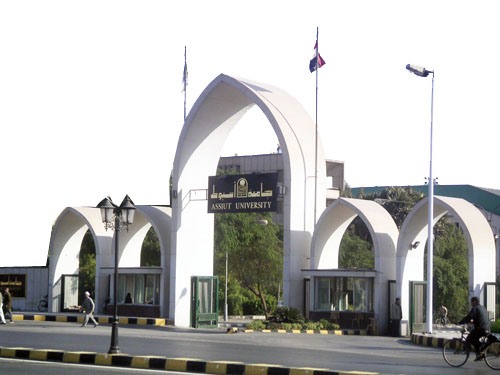 The year 2006 saw the launching of the website of Assiut University. It was a welcome addition to the cyberworld by one of Egypt’s top tier universities, especially since the site provided considerable information. Included were statistics about the number of students enrolled but—amazingly—they were classified according to religion. Anyone unfamiliar with Assiut, the capital city of Upper Egypt, may find the classification according to religion irrelevant, but not so the people of Assiut. Religious categorisation is a deeply-rooted Assiuti trait, and religious discrimination against Christians is the cause for an incessant stream of complaints, claims, and legal action by Assiutis. Since it deals a lethal blow to citizenship concepts, it is also the cause for an intensifying sense of bitterness and frustration among Assiut Copts.
The year 2006 saw the launching of the website of Assiut University. It was a welcome addition to the cyberworld by one of Egypt’s top tier universities, especially since the site provided considerable information. Included were statistics about the number of students enrolled but—amazingly—they were classified according to religion. Anyone unfamiliar with Assiut, the capital city of Upper Egypt, may find the classification according to religion irrelevant, but not so the people of Assiut. Religious categorisation is a deeply-rooted Assiuti trait, and religious discrimination against Christians is the cause for an incessant stream of complaints, claims, and legal action by Assiutis. Since it deals a lethal blow to citizenship concepts, it is also the cause for an intensifying sense of bitterness and frustration among Assiut Copts.
A history of religious discrimination
Youseef Sidhom
Opinion
00:06
Monday ,21 June 2010

Very lately, it appears someone drew the attention of those in charge of the website that statistics based upon religious categorisation carried a detrimental public image of the university to the entire world; the statistics were withdrawn from the site. In all cases, the data cited had indicated that out of 72344 students enrolled in 2006 with the university 28 per cent were Christian, out of 2011 faculty members 0.75 per cent were Christian, and out of 1494 support staff 2.01 per cent were Christian.
No one can fail to notice the huge discrepancy between the proportion of Christian students and that of Christian faculty members and support staff. The reason is obvious: students enrol in universities by virtue of the marks they score in official, impartial examinations where the identity of the student is kept confidential until the exam results are made public; meaning that students are assured an absolutely fair, non-discriminative assessment. And in view of the unofficial estimates—there are no official figures—which place the proportion of Christians at some 10 per cent of Egypt’s population, the 28 per cent of enrolled students is particularly high. This may be due to the fact that there is a larger population density of Christians in the south, and that Assiut attracts students from all over Upper Egypt. Once a student enters university, however, he or she discovers they have to confront an entirely new set of challenges, many of which is out of their hands to overcome. It is not merely that the general climate is fanatic; fanaticism is something they have learnt to live with since they were children. University teaching staff possess at the tip of their fingers tools they can exploit—in the absence of any accountability or questioning—to manipulate oral and practical examinations to come up with the marks they wish to grant students. This is frequently used to discriminate between students on a religious basis, making sure Christian students never attain the marks that would qualify them to join the teaching staff later. Small wonder then that only a trickle of the Christians enrolling in the first year in university make it to teaching staff.
The statistics cited concern 2006. Today, with the escalating fanaticism and discrimination, the figures are expected to be worse. The stories cited by students of the goings-on in oral exam are appalling. Once it is discovered the student is Christian, the examiner at best dismisses the student without posing any questions, granting them the mark he chooses. At worst, the student is required to answer some prohibitively difficult questions while being treated with humiliating sarcasm.
The above was only a sample of the discrimination exercised against Christians in Assiut University. It is tangible in that the numbers and the details are palpable and undeniable. But worse, it is the product of a wider and more general climate of fanaticism and Islamism that encompasses every detail on campus, and invades even the curricula which should supposedly have been strictly scientific. This is the more menacing aspect of university life, and warrants future articles.



